Adoramus te, christe, et benedicimus tibi,
quia per crucem tuam redemisti mundum.
We adore thee, O Christ, and we bless thee,
for by thy cross thou hast redeemed the world.
Today, September 14, we celebrate the feast of the Exaltation of the Holy Cross, the sign of our Christianity, the source of our redemption, a vivid reminder of the sacrifice our Lord and Savior made for us upon Calvary. It is the sign of our freedom, the Sign of the Cross, with which we mark ourselves. At Baptism, we are sealed with the Sign of the Cross, signifying the fullness of redemption and that we belong to Christ. Throughout our lives, especially in times of trial and struggle, we look to the Sign of the Cross as our strength and protection. We make the Sign of the Cross before prayer fixing our minds and hearts to God. We make the Sign of the Cross at the conclusion of prayer to keep close to God. Rather than just a movement of our hands, let us remember today that our Sign of the Cross is a consecration to the Lord—a movement in which we give our entire self to God — mind, soul, heart, body, will, and thoughts, joyfully exclaiming:
“O cross, you are the glorious sign of victory.
Through your power may we share in the triumph of Christ Jesus.”
Today’s feast is a triumphant liturgy— a day in which red is worn to symbolize the glorious and saving sacrifice of Jesus on the Cross. The Church sings of the triumph of the Cross—no longer an instrument of death and torture—but the powerful and glorious instrument of our redemption. To follow Christ we must take up His cross, follow Him and become obedient until death, even if it means death on the cross. We identify with Christ on the Cross and become co-redeemers, sharing in His cross.
The cross has long been the symbol of Christians. As early as 148, Saint Justin Martyr spoke of the cross as the “standard symbol” of Christianity. By 211, Tertullian had taught his students that Christians should rarely do “anything of substance without first making the Sign of the Cross.” Tradition holds that this sign of our faith identifies our actions, and reminds us of Whom we belong to.
The history of the Feast of the Exaltation of the Holy Cross was established in the seventh century, but has it’s origins in the fourth century. As previously written, Saint Helena of Constantinople (mother of Roman Emperor Constantine I), is said to have discovered the True Cross upon which hung the Savior of the World in 326. She commissioned the building of the Church of the Holy Sepulchre, which was built on the site of discovery and dedicated on September 14, 335. The most substantial piece of the True Cross was placed inside of the church. During the dedication, the practice of veneration of the cross was begun.
However, in the year 627, during the reign of the emperor Heraclius I of Constantinople, the Persians conquered the city of Jerusalem and removed the True Cross. The emperor resolved to win back by combat this precious object. Before he left Constantinople with his army, Heraclius went to the church and begged God to sustain his courage, taking with him to combat an image of Jesus. His armies miraculously won victory after victory, and peace was soon established. Heraclius insisted that one of the conditions of the peace treaty was the return of the True Cross, and upon return to Jerusalem, the faithful honored the occasion with procession, olive branches, and torches.
Carrying the cross on his shoulders, wishing to honor the Lord, processed through the city, returning the saving instrument of grace to Calvary. However, upon reaching the gates, he found he could go no further. “Take care, O Emperor!” the Patriarch Zachary is reported to have said to him. “Certainly the imperial clothing you are wearing does not sufficiently resemble the poor and humiliated condition of Jesus carrying His cross.”
Heraclius was touched on hearing this, and removed his splendid jewel-covered robes and shoes. Donning a poor man’s tunic, he continued to Calvary and replaced the True Cross in the sanctuary of the church. During the course of the procession, numerous miracles occurred, and the people greatly rejoiced. From that year on, the Feast of the Exaltation of the Holy Cross was instituted.
Saint Symeon the New Theologian said of the cross:
“... For Christians the cross is magnification, glory, and power: for all our power is in the power of Christ who was crucified; all our sinfulness is mortified by the death of Christ on the cross; and all our exaltation and all our glory are in the humility of God, who humbled himself to such an extent that he was pleased to die even between evil-doers and thieves. For this very reason Christians who believe in Christ sign themselves with the sign of the cross not simply, not just as it happens, not carelessly, but with all heedfulness, with fear and with trembling, and with extreme reverence. For the image of the cross shows the reconciliation and friendship into which man has entered with God.
Therefore the demons also fear the image of the cross, and they do not endure to see the sign of the cross depicted even in the air, but they flee from this immediately knowing that the cross is the sign of the friendship of men with God...
Those who have understood this mystery and in very fact have known in experience the authority and power which the cross has over demons, have likewise understood that the cross gives the soul strength, power, meaning, and divine wisdom... To the degree of the reverence which one has toward the cross, he receives corresponding power and help from God. To him may there be glory and dominion for ever. Amen.”
We are reminded today, as we celebrate the cross, of God’s love for humanity. The Gospel reminds us of the astounding reality that ours is a God who truly loves His people. God loves us so much that He sent His beloved Son to redeem us and to bring us the good news of salvation. Out of obedience to the will of the Father, Jesus proclaimed the Gospel of love to all even unto death. We recall the words of Jesus: “He who does not take up his cross and follow Me is not worthy of Me. He who finds his life will lose it, and he who loses his life for My sake shall find it” (Mt 10:38,39). If we take up our own crosses, we unite ourselves more closely to Christ who offered His very self for our salvation. May we who take up our crosses likewise be exalted one day in the glory of eternal life with God.
"How splendid the cross of Christ! It brings life, not death; light, not darkness; Paradise, not its loss. It is the wood on which the Lord, like a great warrior, was wounded in hands and feet and side, but healed thereby our wounds. A tree has destroyed us, a tree now brought us life." (Saint Theodore of Studios).
God our Father,
in obedience to you your only Son accepted death on the Cross for the salvation of mankind.
We acknowledge the mystery of the Cross on earth. May we receive the gift of redemption in heaven.
We ask this through our Lord Jesus Christ, your Son, who lives and reigns with you and the Holy Spirit, one God, for ever and ever.
From the Homily of Pope John Paul II (September 14, 2003):
"O Crux, ave spes unica! Hail, O Cross, our only hope!
Dear Brothers and Sisters, we are invited to look upon the Cross. It is the “privileged place” where the love of God is revealed and shown to us.… On the Cross human misery and divine mercy meet. The adoration of this unlimited mercy is for man the only way to open himself to the mystery which the Cross reveals.
The Cross is planted in the earth and would seem to extend its roots in human malice, but it reaches up, pointing as it were to the heavens, pointing to the goodness of God. By means of the Cross of Christ, the Evil One has been defeated, death is overcome, life is given to us, hope is restored, light is imparted. O Crux, ave spes unica! …
“As Moses lifted up the serpent in the wilderness, so must the Son of man be lifted up, that whoever believes in Him may have eternal life” (John 3:14-15), says Jesus. What do we see then when we bring our eyes to bear on the cross where Jesus was nailed (cf. John 19:37)? We contemplate the sign of God’s infinite love for humanity.
O Crux, ave spes unica! Saint Paul speaks of the same theme in the letter to the Ephesians…. Not only did Christ Jesus become man, in everything similar to human beings, but He took on the condition of a servant and humbled Himself even more by becoming obedient to the point of death, even death on a cross (cf. Philippians 2:6-8).
Yes, “God so loved the world that He gave His only Son” (John 3:16). We admire — overwhelmed and gratified — the breadth and length and height and depth of the love of Christ which surpasses all knowledge (cf. Ephesians 3:18-19)! O Crux, ave spes unica!
Through the mystery of your Cross and your Resurrection, save us O Lord! Amen.”
Inspired by the origins and spiritual history of the Holy Rosary, we continue our meditation on the psalms, one each day, in order, for 150 days.
Psalm: Psalm 142: Prayer of a Prisoner in Dire Straits
1 I cry aloud to the LORD;
I lift up my voice to the LORD for mercy.
2 I pour out my complaint before him;
before him I tell my trouble.
3 When my spirit grows faint within me,
it is you who know my way.
In the path where I walk
men have hidden a snare for me.
4 Look to my right and see;
no one is concerned for me.
I have no refuge;
no one cares for my life.
5 I cry to you, O LORD;
I say, "You are my refuge,
my portion in the land of the living."
6 Listen to my cry,
for I am in desperate need;
rescue me from those who pursue me,
for they are too strong for me.
7 Set me free from my prison,
that I may praise your name.
Then the righteous will gather about me
because of your goodness to me.
Day 256 of 365
Prayer Intentions: Lives consecrated to Our Lord; Recognition of His sacrifice; Willingness to make our own sacrifices
Requested Intentions: For a daughter’s successful relationship (M); For a relationship sanctified by God (M); For health of father; For canonization of Pope John Paul II (A); For the conversion of a family (L); For the ill (A); For the health of a family (I); For a father’s successful surgery and recovery (G); For those who are ill, and their caretakers (D); For the safety of a sister who is traveling (A); Recovery of mother with cancer (R); Successful acquisition of a visa (T); Restoration of a marriage (A); For employment and health of mother (G); Successful employment (M); Restoration of a family, End to brother's addiction, Successful marriage (R); Employment (I); Successful recovery of a mother; for all stroke victims (D); Successful return to the faith (A); Emotional, physical, and financial healing (D); Diagnosis and recovery (A); For a successful relationship (J); Those suffering from depression (J); Successful adoption (S); Healing of a father battling cancer (S).
Psalm: Psalm 142: Prayer of a Prisoner in Dire Straits
Why pray the Rosary every day for a year?
Each time the Blessed Virgin has appeared-- whether it be to Saint Bernadette Soubirous at Lourdes; to Lucia, Jacinta, and Francisco at Fatima; or to Mariette Beco at Banneux-- she has asserted the importance, saving grace, and power of praying the Holy Rosary on a daily basis. Based upon her words, the Rosary is penance and conversion for sinners, a pathway to peace, an end to war, and a powerful act of faith in Jesus Christ. Pope Paul VI presented the Rosary as a powerful means to reach Christ "not merely with Mary but indeed, insofar as this is possible to us, in the same way as Mary, who is certainly the one who thought about Him more than anyone else has ever done."
To show us how this is done, perhaps no one has been more eloquent than the great Cardinal Newman, who wrote: "The great power of the Rosary consists in the fact that it translates the Creed into Prayer. Of course, the Creed is already in a certain sense a prayer and a great act of homage towards God, but the Rosary brings us to meditate again on the great truth of His life and death, and brings this truth close to our hearts. Even Christians, although they know God, usually fear rather than love Him. The strength of the Rosary lies in the particular manner in which it considers these mysteries, since all our thinking about Christ is intertwined with the thought of His Mother, in the relations between Mother and Son; the Holy Family is presented to us, the home in which God lived His infinite love."
As Mary said at Fatima, "Jesus wants to use you to make Me known and loved. He wishes to establish the devotion to My Immaculate Heart throughout the world. I promise salvation to whoever embraces it; these souls will be dear to God, like flowers put by Me to adorn his throne."

Subscribe to:
Post Comments (Atom)








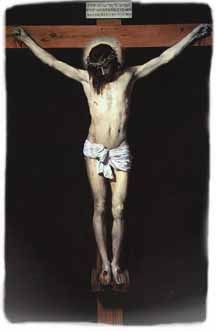

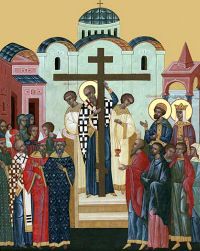

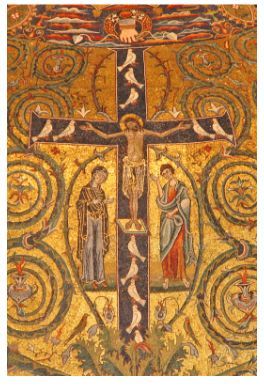
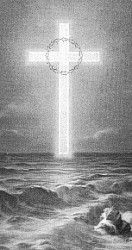
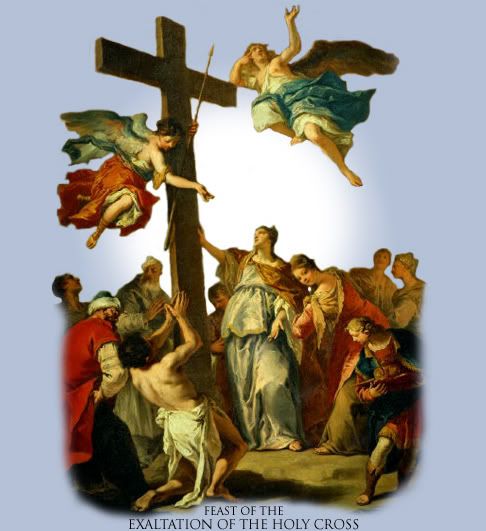
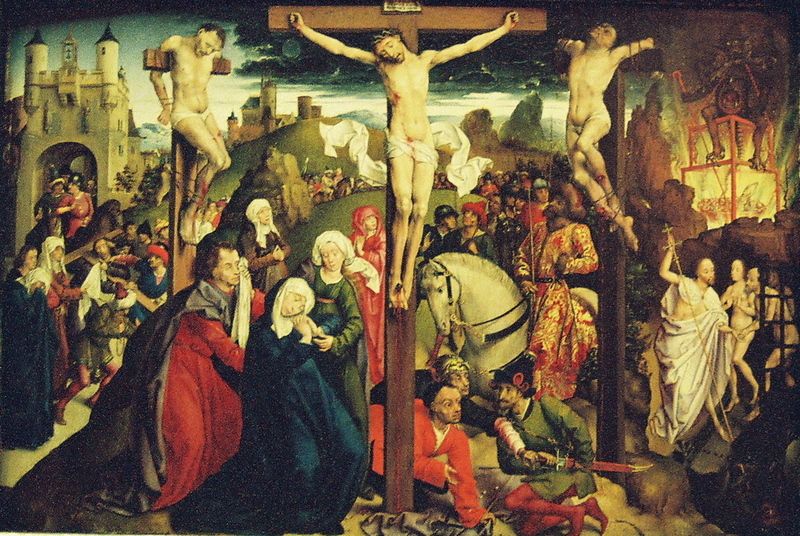
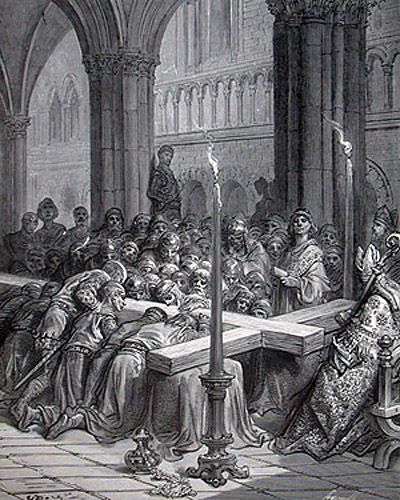

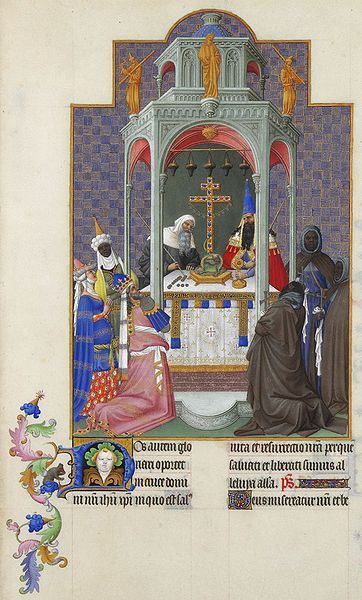
0 comments:
Post a Comment
Thanks for leaving a comment. If you wish to submit a prayer request, however, please do so above, using the "Contact" tab.